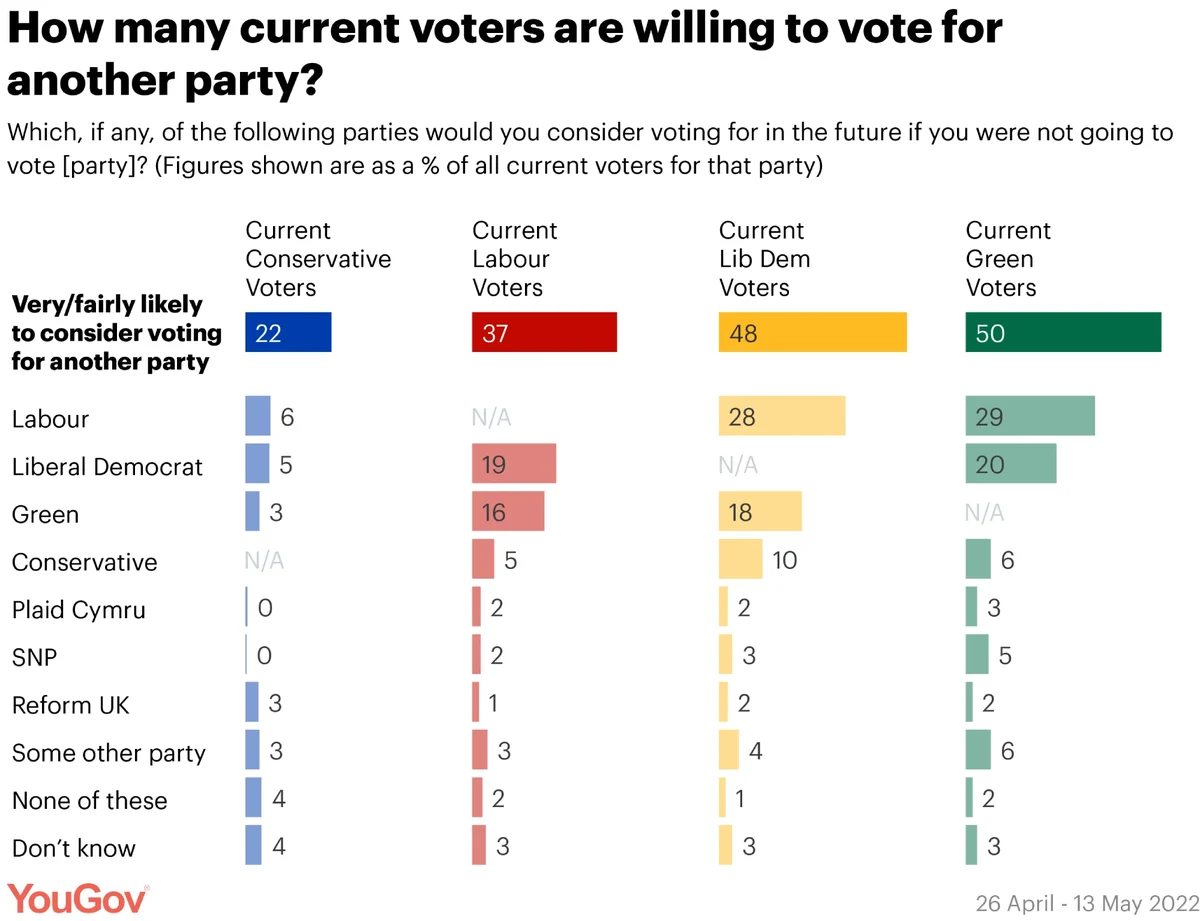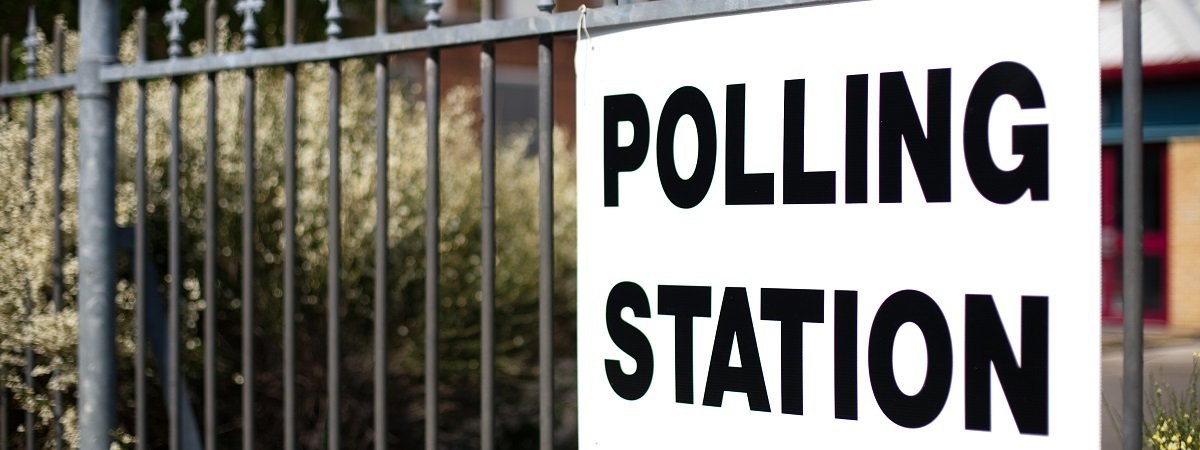Conservatives are the least willing to consider voting for another party
In the ever-shifting world of politics, how many voters are steadfast in their choice of party? A new YouGov survey asks voters how willing they would be to vote elsewhere, and who might get their ballot if so.
The research shows that among the top four parties, Green and Lib Dem supporters are more likely to consider switching. Among current Green party voters, 50% say they would be likely to consider another party for their vote – including 11% who are “very likely” to do so. Only 11% would be entirely opposed to voting for another party. Overall, approaching three in ten Greens (29%) say they would consider voting Labour, while 20% would mull over a vote for the Lib Dems. Just 6% would consider a switch to a Conservative vote.

Current Liberal Democrat voters are a close second, with almost half (48%) open to voting for another party. Around a quarter (28%) say they would consider a Labour vote, and 18% one for the Greens. Just 10% of Lib Dem voters would think about casting their ballot for the Conservatives.
Around a third (37%) of current Labour voters say they would think about voting for another party, while 20% would not at all. Some 19% would consider the Lib Dems for their vote, and 16% the Green party. Only 5% of current Labour voters would consider voting for the Conservative party.
Finally, current Conservative voters are the least likely to say they would consider another party for their vote, with only 22% open to doing so and 33% completely opposed to the idea. Just 6% would consider switching to a Labour vote, with a similar proportion willing to consider a Lib Dem vote (5%).
This greater reluctance to consider other parties among current Conservative voters could be a result of wavering 2019 voters already looking elsewhere, with only steadfast Tory voters remaining in the Conservative camp for the moment.
Among Reform UK voters, 42% would consider a vote for another party, versus 16% who would not at all. Of SNP voters, one in four (27%) would think about doing do, versus 28% who would be opposed to voting elsewhere. However, the sample sizes of these two voting blocs are too small to analyse further.
See full results here











